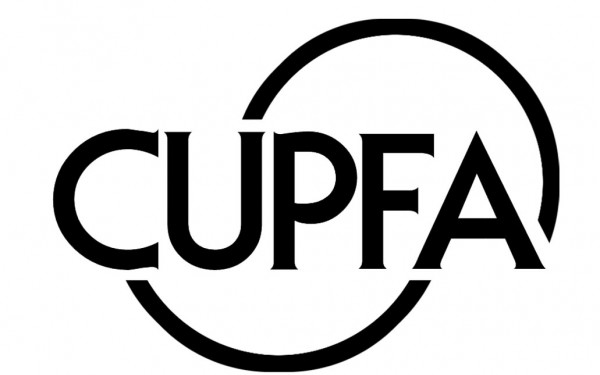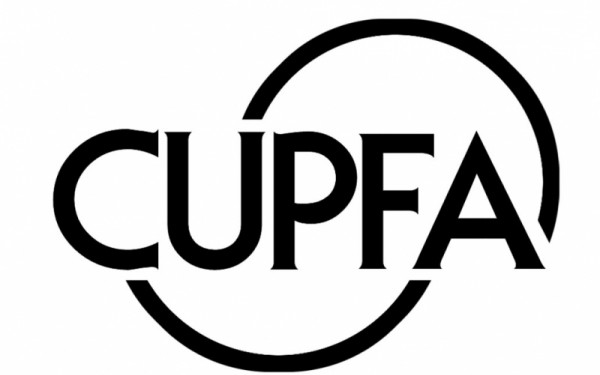Maria Peluso Elected to Board of Governors
As the CUPFA President Moves on, Unions Still Grapple with Sluggish Negotiations
When speaking with outgoing Concordia University Part-Time Faculty Association President Maria Peluso, it becomes clear quite fast just how much she cares about the university.
And when she says “the university,” she means its students—first and foremost.
The political science professor and former Concordia Senator has earned a reputation as someone who gets things done.
“It’s a university community,” said Peluso. “It’s not them, us, the Board, the corporate—at least Concordia’s history is not that.
“Until the day I die I’m going to try and reinforce those elements that bring us together.”
Beside her “chief gladiator” David Douglas, the union’s Communications Chair and Peluso’s successor, Peluso spoke with The Link as her time as CUPFA president comes to a close.
She speaks with the kind of authority only someone with a deep understanding of how this place functions can. Her role at the university is shifting, having been voted in as a Board of Governors member, the highest decision-making body at Concordia.
Peluso has seen many administrators come and go in her 21 years as CUPFA president, and the ever-growing importance Concordia holds in the local economy.
In her trademark style of toughness, she’s quick to point out there is still much work to be done.
“Concordia’s chief problem is that of transparency in finances and human resources, which we call, by the way, the department of human annihilation,” she said.
Peluso says Concordia takes longer than anyone else to negotiate, a statement often heard from the university’s other unions as well—all but one of which are currently working under an expired contract.
It’s a process that’s gotten worse in Peluso’s time at the university. In the past year, she says that 250 grievances had been filed with the university for not respecting previous agreements.
CUPFA currently holds an unlimited strike mandate, meaning their members have approved the use of strike tactics in negotiations.
“They are progressing at a tediously slow pace,” said Douglas. The university cancelled five summer negotiation sessions, and took eight dates in the fall when CUPFA offered them 20. The first fall session is Sept. 9.
“Positions should revolve around two or three issues […] we have a long litany, the entire collective agreement is what they want to redo,” Peluso said. “It took seven years to get the collective agreement we have and they’re not implementing it.”
For things to improve, CUPFA argues that the university’s entire negotiation team needs to be replaced.
“Whether you’re a part-time faculty member or a student, there are a number of people in the university administration who didn’t take those people all that seriously,” said former Concordia Student Union President Lex Gill.
In the time that the university’s part-time faculty concluded negotiations on CUPFA’s last collective agreement, the Concordia University Faculty Association, which represents full-time professors, got through two agreements.
“We have no desire to harm the name of Concordia,” said Douglas. “This is where we’ve invested years of our lives. We certainly believe it is in the interest of all parties to make the process work.”
But, he added, “They’re not willing to wait seven years again.”
In her time at Concordia, Peluso has been through the trials and tribulations of dealing with a provincial government that changes course every few years.
Coming from Ontario, Peluso was shocked by the reality of working with the government in Quebec.
“I was traumatized when I came here; I didn’t realized how screwed up education policy was here in Quebec,” she said. “It’s something we at CUPFA have monitored from elementary school to high school to CEGEP to university—they interfere a lot.
“That’s not bad if you have a game plan that’s going to last a long time, but it’s really bad that this regime changes every time you have a new minister.”
Her institutional knowledge proves invaluable, not just for CUPFA, but for the university community as a whole.
“When I started at TRAC [the Teaching and Research Assistants at Concordia union], she was the first one I went to for advice,” said former TRAC President Robert Sonin. “I went to her with our collective agreement and asked for help on that. I would have been completely lost if I hadn’t had her help.
“When it comes to the lay of the land of Concordia, no one knows it better than her,” he continued. “She’s a voice the Board absolutely needs to have.”
Peluso was part of the review committee that was charged with finding ways to ease the “culture of contempt” that an external report had found within Concordia’s governance.
The Board of Governors has since been scaled back from 40 voting members to 25, with a mix of internal and external members. The new Board, she says, is a “breath of fresh air.”
“Just look at who we’ve got as the chairman of the board: a wine expert. And he did a very good job of the SAQ while he was there. He is very sophisticated and very laid back,” said Peluso about Board of Governors Chair Norman Hébert Jr. It’s marked improvement from the top-down governance style she had seen in recent years.
And now Peluso will get to put her skills and determination to a different task—sitting as a Governor herself. She’s optimistic about the new faces in the university’s upper administration, but says things likely won’t move as fast as she’d like them to.
“It’s going to take them some time because you’ve got to dismantle the mistakes and create something different. [Concordia President] Alan [Shepard] loves students, you can feel it.”
Peluso’s emphasis on social justice and access to education at Concordia fuels her passion, which those who have worked with her are quick to praise.
The causes she pushes for, be it maintaining quality of education or accessible student housing downtown, are not because it’s simply her job, but because she genuinely feels it is essential for the betterment of students.
“It’s really interesting to see a woman in a position of leadership who is not afraid to express that emotion, to say ‘I am so sad about this’ or ‘I am so frustrated about this,’” said Gill.
“She builds such powerful relationships that way.”
Gill lead the CSU executive during the Maple Spring, and says Peluso was instrumental in the contribution Concordia made to the student movement.
“She really put herself on the line to publicly support the students when anyone else wouldn’t have, especially with how the Concordia administration reacted at the time,” Gill said.
Peluso also helped ensure Concordia was closed on March 22, so students could freely participate in the Day of Action against tuition hikes.
“It was a gutsy thing to do, to make accommodations for students on strike, to not penalize students on picket lines,” said Gill.
–With files from Corey Pool

_900_676_90.jpg)
_900_556_90.jpg)


_1_600_375_90_s_c1.jpg)
_600_375_90_s_c1.jpg)

